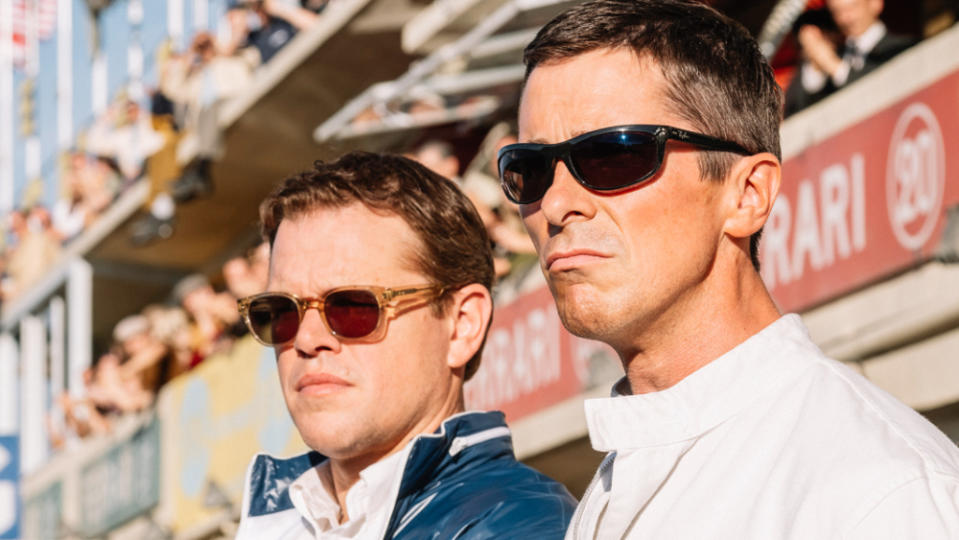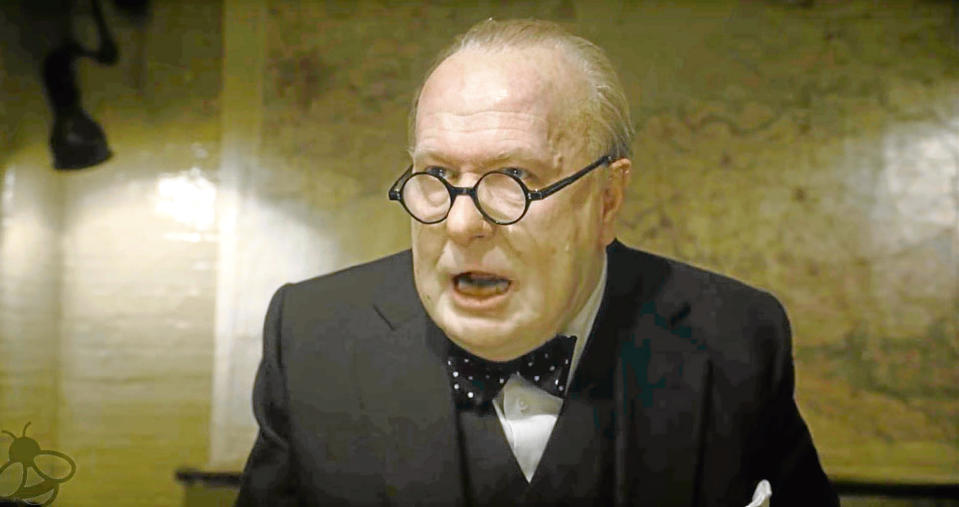Christian Bale and Matt Damon want actors to stop with the dramatic weight changes
In the process of becoming one the most acclaimed actors of his generation, Christian Bale has also developed a reputation for his willingness dramatically transform his body for a role.
He was bone-thin, dropping some 60 pounds for the 2004 drama The Machinist, and repeated similar feats for Rescue Dawn (2006) and his Oscar-winning role in The Fighter (2010). To play former Vice President Dick Cheney in last year's Vice, Bale packed on 50 pounds, then had to shed 70, going from 240 pounds to 170 pounds, to play the much scrawnier race-car driver Ken Miles in his latest film, Le Mans ‘66.
Bale voiced reservations about continuing to alter his frame when doing the press rounds for Vice a year ago, and is doubling down on those while discussing Le Mans ‘66, which teams him with Matt Damon for the compelling true-life tale of Ford Motors' attempt to compete with powerhouse sportscar makers Ferrari at the 1969 24 Hours of Le Mans race in France.
Read more: Christian Bale’s most extreme transformations
"I did [lose a lot of weight for Le Mans ‘66], but that was necessary so I didn't die," Bale told Yahoo Entertainment during a recent interview, where he was joined by Damon. "So it was killing two birds with one stone. So I got to lose the weight, and be able to fit into a GT40."
Bale admits all the fluctuations could potentially be dangerous for his health: "Yeah, I'm 45 now, I'm beginning to actually worry about it." He corrects himself: "Not worry about it, just think about it."

Damon, 49, has also dramatically tweaked his weight for film roles over the years, losing more than 50 pounds for one of his earliest roles, Courage Under Fire (1996), and adding 30 for 2009's The Informant!
"I got down in the 130s, which for me is a lot because I probably walk around [averaging] 190," Damon said of Courage, on which he regrets not working with a nutritionist. "I actually had a guy help me who was a bodybuilder, and he gave me a [diet] for how they cut the last three weeks before a competition, and I did it for almost four months, which was really [unhealthy]. I ended up on medication and stuff. It was a stupid thing to do… [Those scenes were] in flashback, so then I had three weeks to put as much weight back on as I could, so I just started eating whatever I wanted. It was a disaster."
Read more: The hidden danger of actor transformations
Both Bale and Damon expressed concern that their extreme body makeovers could inspire other actors to make poor decisions when preparing for roles.
"I worry about this becoming a regular conversation, because it isn't healthy for people to do that," Bale said. "And it becomes some kind of marker for commitment to your craft or whatever. I never viewed it as that. I just sort of went, 'Oh, I think I have to do this.'
"I worry when it becomes a marker of, 'How committed are you to a role?' 'How much did you lose?' And eventually there will be some tragedy because of this. It should be an anomaly. You go for the essence of the character.'

While he probably wouldn't have considered it in the past, Bale says he's now likelier to follow in the path of someone like Gary Oldman, who wore a foam bodysuit and heavy prosthetics for his Oscar-winning portrayal of Winston Churchill in The Darkest Hour (2017). For weight gains, anyway.
"I saw what Gary Oldman was able to do as Churchill, and whereas before I would laugh when people went, 'Can't you just sort of put on a suit?' It was like, 'No, no, that's now how it works.' And [now] it's like, 'Oh, that's exactly how he did it.'"
"He's brilliant in that movie," agreed Damon. "So let that be an object lesson in ways you can go about it."
Le Mans ‘66 is in cinemas now. Watch the trailer:

 Yahoo Movies
Yahoo Movies 
